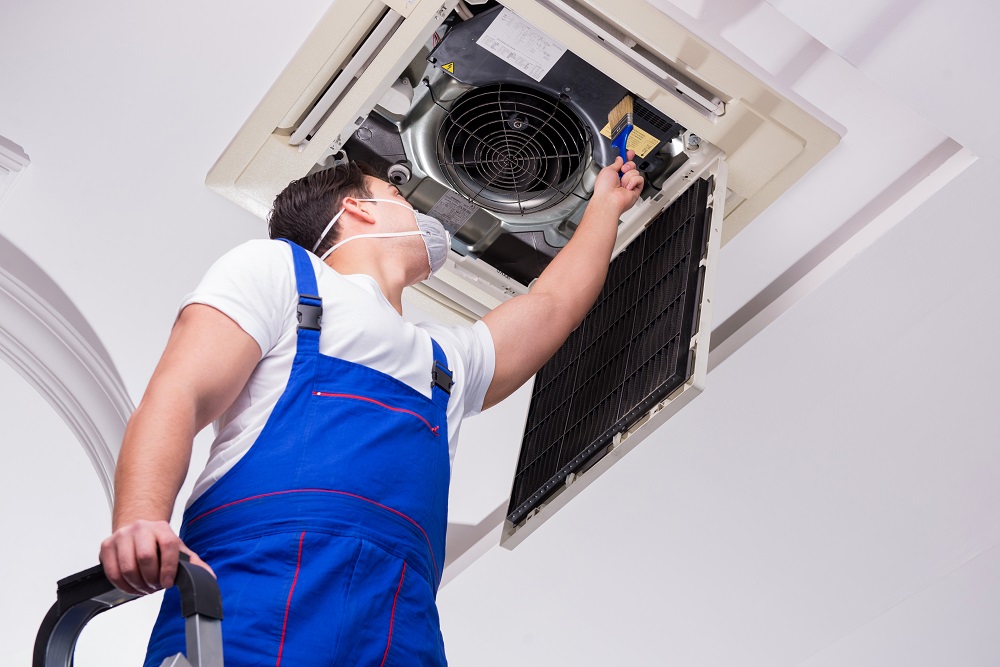Regarding maintaining a pleasant environment in our homes and work environments, grasping HVAC systems is crucial. HVAC, which stands for heating, official website , and air conditioning, has a critical role in regulating indoor temperatures and air quality throughout the year. But with various options available, locating the appropriate system for your preferences can seem overwhelming. This article aims to break down the differences between central and ductless HVAC systems, assisting homeowners make informed decisions about their HVAC choices.
As we examine central and ductless options, we'll delve into how these systems operate, the benefits and drawbacks of each, and tips for selecting the right one for your living space. Whether you're upgrading an old system or preparing for a new installation, knowing how these HVAC choices compare will allow you to build a welcoming and eco-friendly living space. Let's take a closer look at the world of HVAC and uncover which system might be the perfect fit for your unique situation.

Understanding HVAC Technologies
HVAC stands for the systems for heating, ventilation, and air conditioning, which includes the systems used to offer heating and cooling options for residential and business spaces. Heating systems mechanisms heat the indoor environment during colder months, while air conditioning units cool it down during the heat of the summer season. Proper ventilation is essential for guaranteeing fresh air circulates throughout the space, which not only enhances convenience and also plays a vital role in maintaining the quality of indoor air.
A common HVAC system includes various elements functioning collaboratively. The core elements are a furnace or heat generator for heating, an air conditioning unit or heat pump for cooling, ductwork to carry air, and a temperature control unit to regulate the temperature. Understanding how every component operates aids residents and property managers know how to care for and troubleshoot their systems effectively.
As HVAC technology develops, new innovations appear to enhance energy effectiveness and comfort inside. Intelligent HVAC systems now connect with home automation technologies, facilitating greater control and monitoring. Additionally, solutions like ductless systems or geothermal heating offer alternative solutions that can meet specific needs, making it crucial for buyers to consider various options when selecting an HVAC system for their space.
Common HVAC Problems and Resolutions
Property owners regularly face a range of HVAC problems that can interrupt comfort and performance. One frequent issue is poor heating or cooling, which can be caused by filthy filters, blocked vents, or an improperly sized system. Routine maintenance, such as filter replacements and clearing airflow pathways, can help alleviate these issues. If problems persist, it may be necessary to seek advice from a professional for additional diagnosis or adjustments.
A common issue is strange noises coming from the HVAC system, such as banging, squealing, or hissing. These sounds can indicate unsecured components, worn belts, or airflow blockages. Homeowners should promptly respond to any unusual noises by checking for loose parts or dirt in the system. If the noises continue, contacting an HVAC professional is recommended to prevent possible damage and ensure safety.
Lastly, high energy bills can signal that an HVAC system is not operating efficiently. Frequent culprits include poor insulation, outdated equipment, or overlooking routine maintenance. To combat this issue, homeowners should consider scheduling regular tune-ups to keep the system in optimal condition and explore energy-efficient upgrades. Implementing smart thermostats and improving insulation can also contribute to reduced energy consumption and lower bills.
Energy Conservation and Intelligent HVAC Selections
Selecting the appropriate HVAC unit is essential for boosting energy efficiency in your home. Central HVAC systems tend to have greater upfront costs due to the comprehensive installation of ductwork, but they can effectively heat or cool bigger spaces. In contrast, ductless HVAC systems, like mini-splits, offer versatility and targeted comfort, allowing you to cool or heat individual rooms without ducts. This may produce reduced energy consumption, particularly if you have sections that aren't used often.
Smart HVAC choices can further boost energy efficiency. The use of smart thermostats allows homeowners to operatively handle their HVAC systems via mobile devices and create routines that coordinate with their daily routines. This minimizes energy waste by ensuring that heating or cooling only occurs only necessary. Additionally, numerous modern HVAC systems are engineered with energy efficiency ratings that guide consumers about anticipated energy use, aiding them to choose systems that best suit their needs.
Putting money into energy-efficient HVAC options also contributes to lowering your energy bills but also affects favorably the environment. By choosing systems that leverage renewable energy sources, such as solar-powered HVAC, you can minimize your carbon footprint. Routine maintenance and updates, including the installation of efficient air filters, enhance overall system performance and indoor air quality, resulting in your home more cozy and environmentally friendly year-round.
